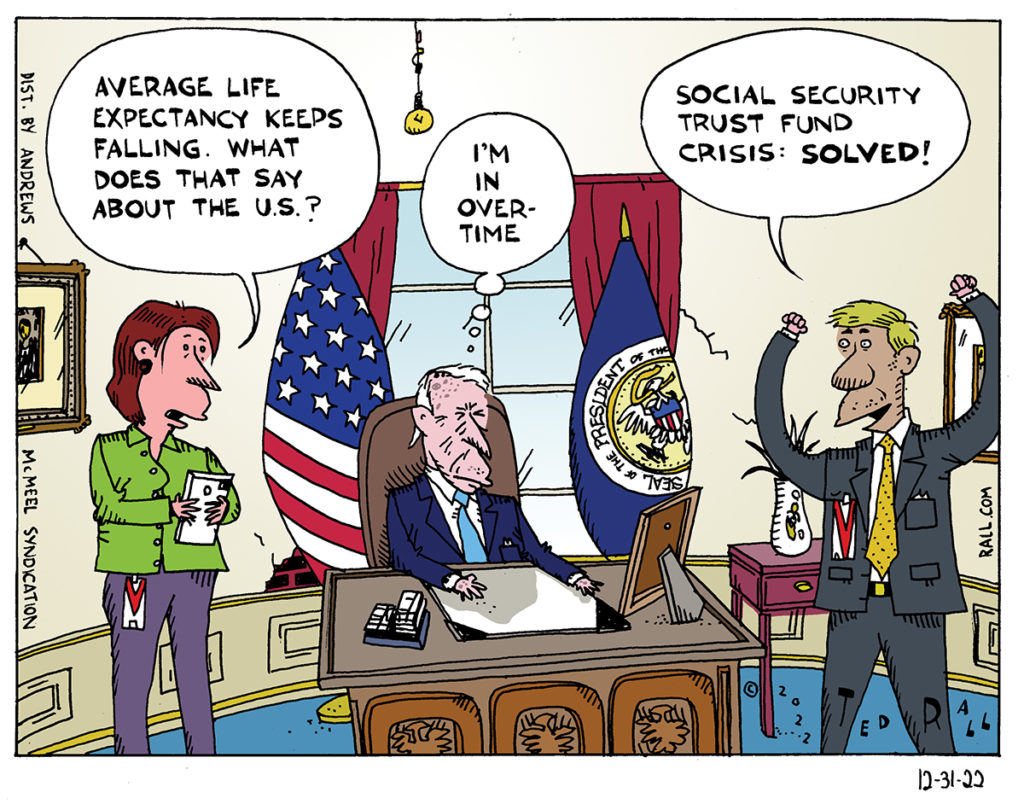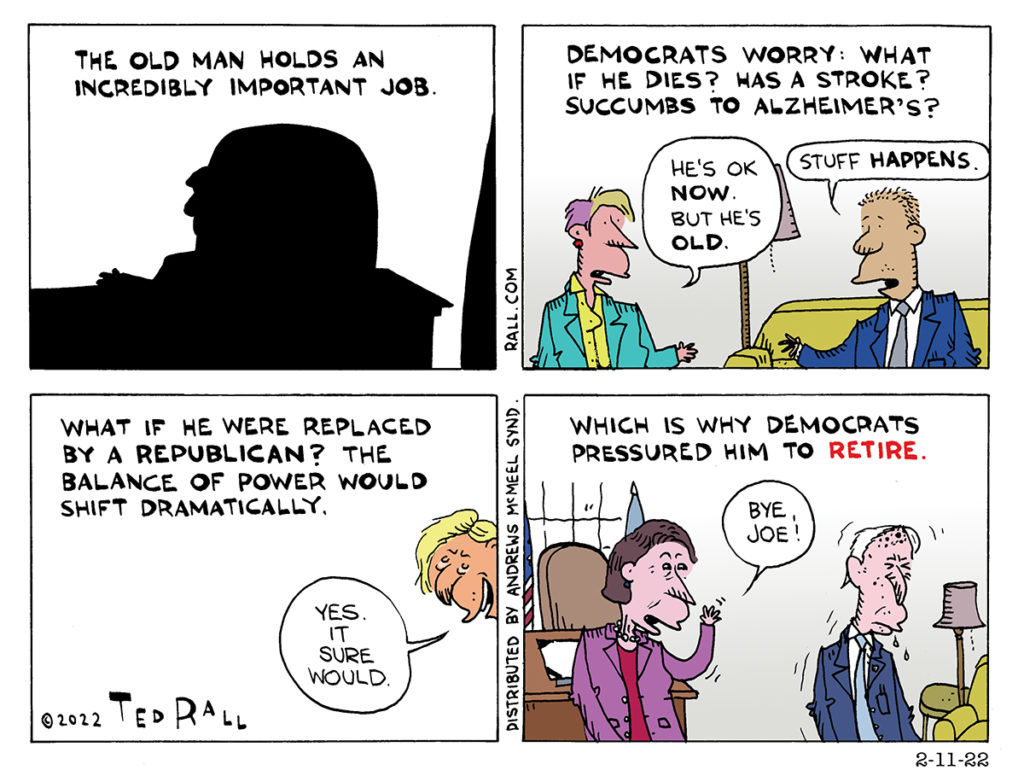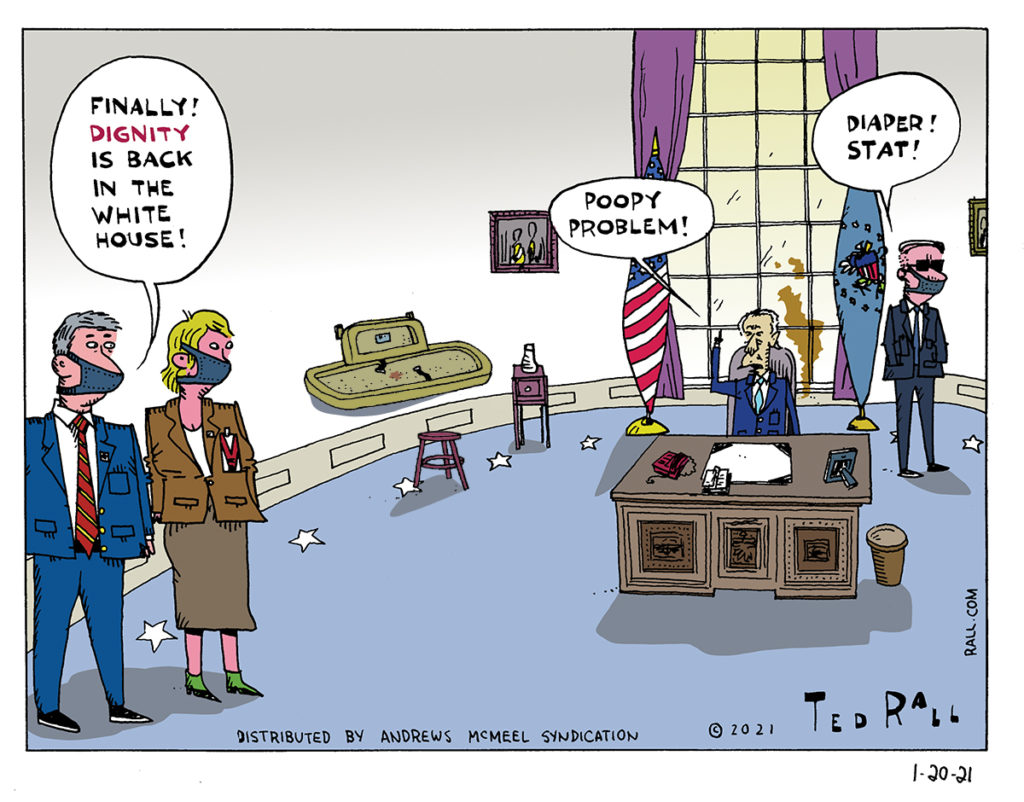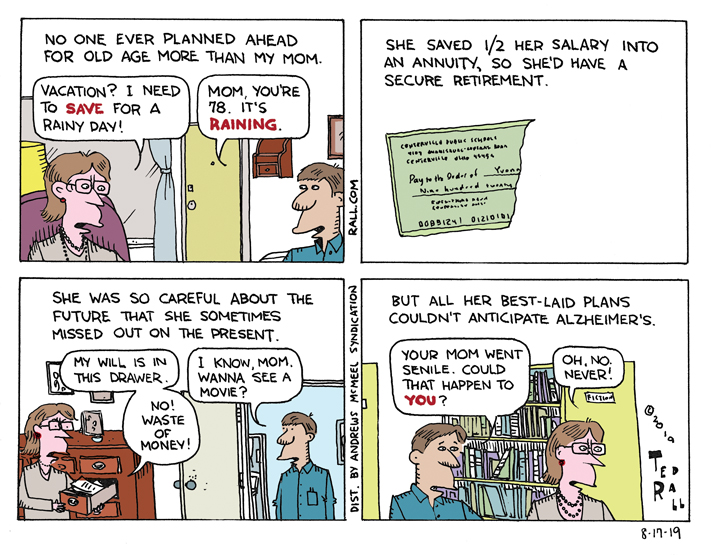Political cartoonists and analysts Ted Rall (of the Left) and Scott Stantis (of the Right) discuss the week’s current events and politics. First, the political classes try to determine whether Joe Biden’s reelection bid can be salvaged after the special counsel’s devastating assessment that he’s too senile to be charged with a felony over mishandling classified documents and, if not, will Democrats force him out and how exactly will that work?
Next, Democrats take disgraced Congressman George Santos’ former seat in New York by a comfortable margin. What, if anything, does this portend for the GOP’s chances overall this fall?
Finally, Republicans take a second stab at impeaching Homeland Security Secretary Alejandro Mayorkas over the border crisis, and succeed. Everyone gets an impeachment! But does it matter?
Watch the Video Version: here.








